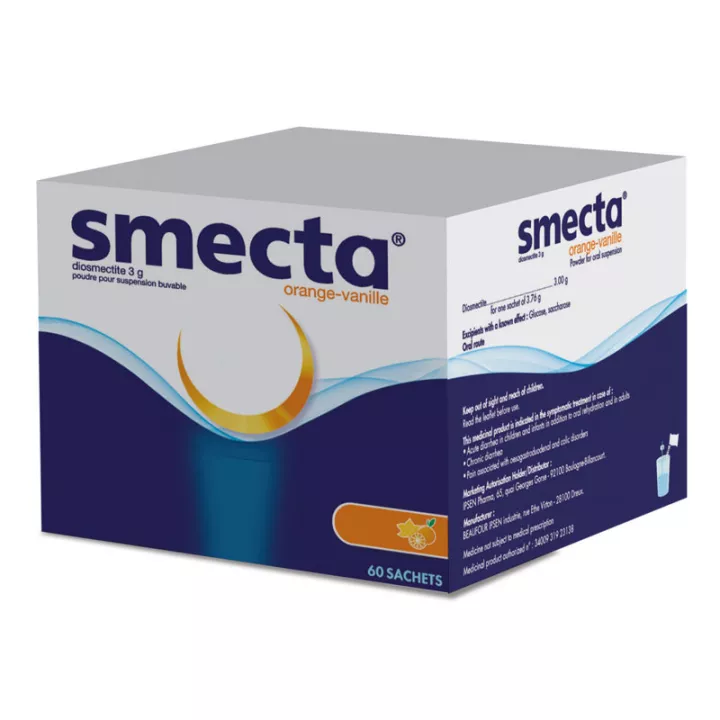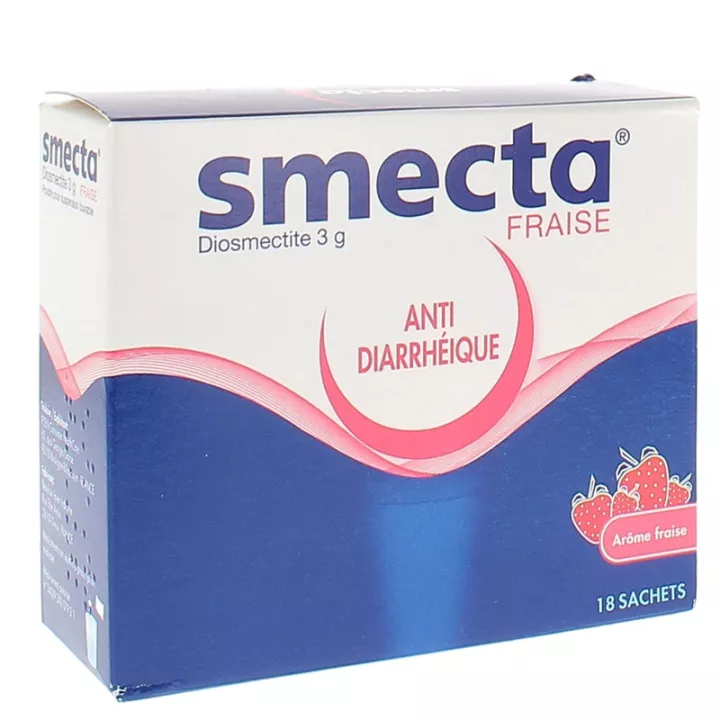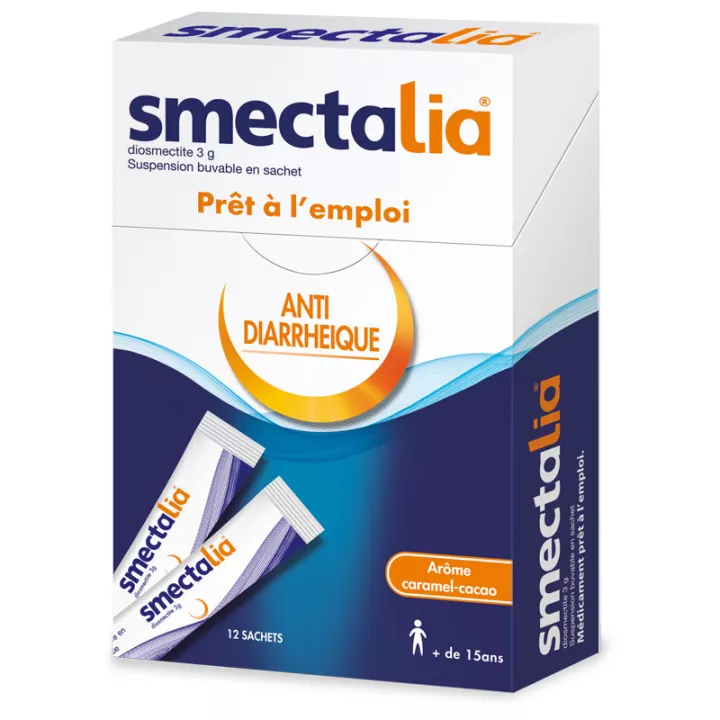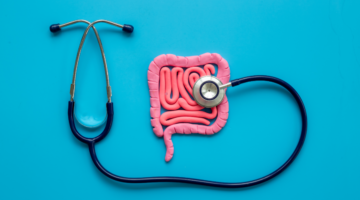NOTICE
ANSM - Last updated: 02/05/2017
Name of the medicinal product
SMECTA 3 g ORANGE-VANILLA, powder for oral suspension in sachet
diosmectite
framed
Please read this leaflet carefully before you start taking this medicine because it contains important information for you.
You should always take this medication exactly as prescribed in this leaflet or by your doctor or pharmacist.
· Keep this leaflet. You might need to read it again.
· Ask your pharmacist for advice or information.
· If you experience any side effects, talk to your doctor or pharmacist. This also applies to any side effects not mentioned in this leaflet. See section 4.
· You should talk to your doctor if you do not feel better or feel less well.
What is in this leaflet?
1. What is SMECTA 3 g ORANGE-VANILLA, powder for oral suspension in sachets and in which cases it is used?
2. What should I know before taking SMECTA 3 g ORANGE-VANILLE powder for oral suspension in sachets?
3. How to take SMECTA 3 g ORANGE-VANILLA, powder for oral suspension in sachet?
4. What are the possible side effects?
5. How to store SMECTA 3 g ORANGE-VANILLE powder for oral suspension in sachets?
6. Package contents and other information.
1. WHAT IS SMECTA 3 g ORANGE-VANILLA, powder for oral suspension in sachets AND WHAT CASES IS IT USED FOR?
Pharmacotherapeutic group: OTHER INTESTINAL ADSORBENTS - ATC code: A07BC05.
This medicinal product contains an active substance: diosmectite.
Diosmectite is a purified natural clay that covers and protects the digestive mucosa. It acts by increasing the resistance of the mucus that lines the intestinal wall and by binding to pathogens such as bacteria, viruses, toxins.
This medication is indicated for the treatment of:
· Acute diarrhea in children and infants in addition to oral rehydration, and in adults;
· Chronic (long-term) diarrhea in adults;
· Pains related to functional diseases of the intestine in adults.
2. BEFORE YOU TAKE SMECTA 3 g ORANGE-VANILLA, powder for oral suspension in sachet?
Never take SMECTA 3 g ORANGE-VANILLA, powder for oral suspension in sachet:
· If you are allergic to diosmectite or to any of the other ingredients of this medication mentioned in section 6.
Warnings and Precautions
Talk to your doctor or pharmacist before taking SMECTA 3 g ORANGE-VANILLA :
· If your doctor has informed you of an intolerance to certain sugars. This medicine contains two sugars (glucose and sucrose). Its use is not recommended in patients with fructose intolerance, glucose-galactose malabsorption syndrome or sucrase / isomaltase deficiency (rare hereditary diseases).
· If you have a history of severe constipation.
Consult your doctor:
· In case of acute diarrhea, if your symptoms do not improve or worsen after 3 days of treatment.
· If your digestive pain is associated with fever or vomiting.
Prolonged or repeated use of SMECTA 3 g ORANGE-VANIILLE is not recommended without medical advice.
children
In children and infants, acute diarrhea should be treated in combination with the early administration of oral rehydration solution (ORS) to prevent dehydration.
Additional dietary measures
This treatment is a complement to dietetic rules:
· Rehydrate with abundant, salty or sweetened beverages to compensate for fluid losses due to diarrhea (the adult's average daily water intake is 2 liters)
· Continue feeding during diarrhea, excluding certain foods, especially raw vegetables and fruits, green vegetables, spicy dishes, as well as frozen foods or drinks,
· By favoring grilled meats, rice.
Other medicines and SMECTA 3 g ORANGE-VANILLA, powder for oral suspension in sachet
Taking this medication may decrease the absorption of other medicines ingested simultaneously. No medication should be taken at the same time as SMECTA 3 g ORANGE-VANILLA.
You should space the intake of SMECTA 3 g ORANGE-VANILLA from another medication of more than 2 hours, if possible.
Inform your doctor or pharmacist if you are taking, have recently taken or may take any other medicines.
SMECTA 3 g ORANGE-VANILLA, powder for oral suspension in sachets with food and beverages
Not applicable.
Pregnancy and breast feeding
SMECTA 3 g ORANGE-VANILLA can be used during pregnancy and lactation.
If you are pregnant or breastfeeding, think you may be pregnant or plan a pregnancy, ask your doctor for advice or pharmacist before taking this medication.
Driving and using machines
No studies on the ability to drive and use machines have been performed. However, the expected effect is nil or negligible.
SMECTA 3 g ORANGE-VANILLE, powder for oral suspension in sachet contains:
Glucose and sucrose. If your doctor has told you about an intolerance to some sugars, contact your doctor before taking this medicine.
SMECTA contains 0.679 g glucose per sachet.
3. HOW TO TAKE SMECTA 3 g ORANGE-VANILLA, powder for oral suspension in sachet?
Always take this medication exactly as prescribed in this leaflet or as directed by your doctor or pharmacist. Check with your doctor or pharmacist if in doubt.
Dosage
Treatment of acute diarrhea :
In infants and children:
· Before 1 year: 2 sachets per day for 3 days then 1 sachet per day.
· From 1 year: 4 sachets per day for 3 days then 2 sachets per day.
In adults: On average 3 sachets per day. In practice, the dosage can be doubled at the start of treatment.
Further information :
In adults: On average 3 sachets per day.
Method and route of administration
Oral use.
The contents of the sachet must be suspended just before use.
In children and infants: The contents of the sachet can be diluted in a bottle of 50 ml of water to be distributed during the day, or mixed with semi-liquid food: boiled, compote, puree, small -pot ", etc.
In adults: The contents of the sachet can be diluted in half a glass of water.
If you take more SMECTA 3 g ORANGE-VANILLA, powder for oral suspension in sachet you should not have
Taking an excessively high dose of SMECTA 3 g ORANGE-VANILLA can cause constipation, which generally disappears when the dose is decreased or treatment is stopped. Consult your doctor or pharmacist.
If you forget to take SMECTA 3 g ORANGE-VANILLA, powder for oral suspension in sachet
Do not take a double dose to make up for a missed dose.
If you stop taking SMECTA 3 g ORANGE-VANILLA, powder for oral suspension in sachet
Not applicable.
4. WHAT ARE POSSIBLE SIDE EFFECTS?
Like all medicines, this medicine may cause side effects, although not everybody gets them.
Adverse reactions that may occur with SMECTA 3 g ORANGE-VANILLA are listed below in order of frequency.
Common (can occur in 1 in 10 people)
· Constipation
Uncommon (can occur in 1 in 100 people)
· Eruption
Rare (can occur up to 1 in 1000 people)
· Urticaria
Unknown frequency (can not be estimated on the basis of available data)
· An allergic reaction that can manifest itself by the following signs: redness of the skin, itching, swelling of the face and throat, difficulty breathing, malaise, collapse.
If you experience any of these signs, you should seek immediate medical attention.
Declaration of side effects
If you experience any side effects, talk to your doctor or pharmacist. This also applies to any side effects not mentioned in this leaflet. You can also report adverse reactions directly via the national reporting system: National Agency for the Safety of Medicines and Health Products (ANSM) and network of Regional Centers of Pharmacovigilance - Website: www.ansm.sante.fr
By reporting adverse reactions, you are helping to provide more information about the safety of the drug.
5. HOW TO STORE SMECTA 3 g ORANGE-VANILLA, powder for oral suspension in sachet?
Keep this medicine out of the reach and sight of children.
Do not use this medicine after the expiry date which is stated on the package after EXP. The expiry date refers to the last day of that month.
This medicine does not require special precautions for storage.
Do not throw any medicines into drains or rubbish. Ask your pharmacist to remove any medications you are no longer using. These measures will help protect the environment.
6. PACKAGE CONTENTS AND OTHER INFORMATION
What SMECTA contains 3 g ORANGE-VANILLE powder for oral suspension in sachet
· The active substance is:
Diosmectite ................................................. .................................................. ................ 3,000 g
· The other ingredients are: Glucose monohydrate, sodium saccharin, orange flavor *, vanilla flavor **.
* Composition of orange flavor : maltodextrin, sucrose, gum arabic (E414), mono- and diacetyltartaric esters of fatty acid mono-and diglycerides (E472e), silicon dioxide (E551), orange perfume.
** Composition of vanilla flavor : maltodextrin, sucrose, glyceryl triacetate (E1518), silicon dioxide (E551), ethyl alcohol, soya lecithin (E322), vanilla fragrance.
What is SMECTA 3 g ORANGE-VANILLE, powder for oral suspension in sachet and contents of the pack
This medicinal product is in powder form for oral suspension in sachets.
Box of 18, 30, 60 or 100 sachets.
Not all pack sizes may be marketed.
Marketing Authorization Holder
IPSEN Pharma
65, QUAI GEORGES GORSE
92100 BOULOGNE-BILLANCOURT
Marketing Authorization Operator
IPSEN Pharma
65, QUAI GEORGES GORSE
92100 BOULOGNE-BILLANCOURT
Maker
BEAUFOUR IPSEN INDUSTRIE
STREET VIRTON
28100 DREUX
Names of the medicinal product in the Member States of the European Economic Area
Not applicable.
The last date on which this leaflet was revised is:
{month YYYY}.
Other
Detailed information on this medicine is available on the ANSM website (France).













